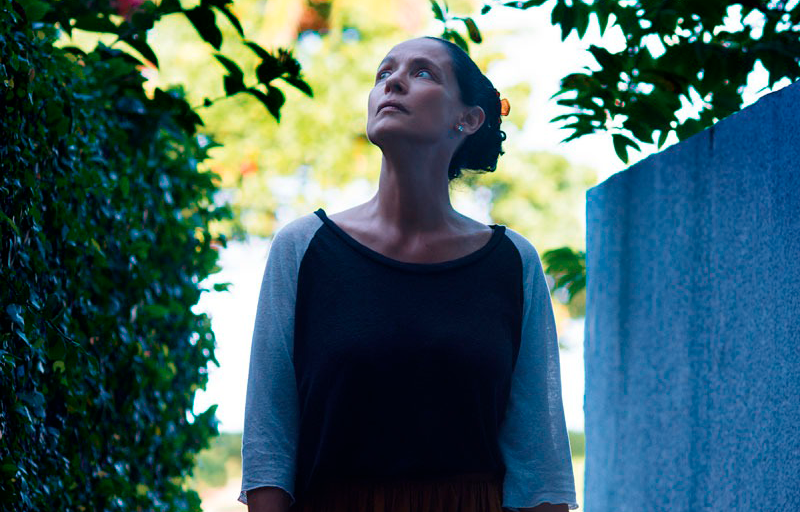Brazilian actress Sônia Braga, 73, is part of the 2020 New York Times list of The 25 Greatest Actors of the 21st Century. A veteran of the world cinema, the legendary actress had her start in Brazilian telenovelas, migrated to America in the mid-1980s and in the last years has had Oscar flirting roles. A BAFTA (1981) and Emmy Awards (1995) nominee she is mostly known for ‘Kiss of the Spider Woman’ (1985) and her latter career turns in ‘Aquarius’ (2016) and ‘Bacurau’ (2019).
“Sônia Braga’s filmography reveals by itself the place of the actress in the world cinema. She has been living and working in the US for more than 30 years and had important roles in the movies produced in Hollywood” evaluates Brazilian film scholar Daniela Gillone, from the University of São Paulo (USP), in an exclusive interview with Big Picture Film Club.
In the Brazilian silver screens, many of her entries are in the top ten of all-time box office hits but like many of her compatriots she had to cut her teeth and make her name in the popular telenovelas.
“Her career peaked during the 70’s and the 80’s coincidently with a period of intense communication from Brazilian productions with the local public. Pictures like ‘Dona Flor and Her Two Husbands’ (1976) and ‘Lady on the Bus’ (1978) represent this very positive moment regarding her popularity and taking over of the domestic market. It is important to remember that parallel to her cinema career, Sônia became one of our major TV stars. For the mainstream audiences, it seems to me that she is more known for her TV work over the movies, however both activities converge to make her one of the most popular Brazilian actresses by the tail end of the 20th Century,” contemplates Sérgio Rizzo, critic from ‘O Globo’ newspaper in an interview with Big Picture Film Club.
In our conversation, Rizzo reminds me that like many foreign talents the fact that her mother tongue is not English, but Portuguese, presents an obstacle and the pigeonholing of foreigners. Braga, like others, had to endure and overcome that to achieve her legendary status.
Gillone observes that “Braga projected herself as a beauty icon and proposed alternatives for the female desire in a traditionalist and conservative culture. I highlight ‘Gabriela’ (1983) by Bruno Barreto where she acted alongside Italian actor Marcello Mastroianni. In this movie, the actress progresses with her resistant posture to the norms imposed on female representations. In national and international movies, we have her singular politics of women’s desire and fantasy building. She brings the figure of a libertarian woman that predominates in her roles and dialogues with her own posture as an actress in world cinema.”
Still, for the current moviegoer crop, Braga is remembered for her later works with Brazilian auteur Kleber Mendonça in the pictures ‘Aquarius’ and ‘Bacurau’ playing older authority figures as an elder stateswoman fighting for the legacy of her building and city in the former or as the doctor in a forgotten city which serves as a human hunting game for foreigners in the horror western that is the latter. Both performances are acclaimed by critics and overlooked during the award seasons.
And in her mid-career entries, Braga showed how ranged she could be even then by playing three different characters in ‘Kiss of the Spider-Woman’ a seminal picture dialoguing about sexual identity and the horrors imposed by dictatorial states on bodies and minds of those deemed enemies.
Another side of her biography is the political activism in defence of human rights and the environmental agenda. Braga “is not aligned with the official conservative speeches” ponders Gillone pointing out her long-standing democratic values, protesting the state of Brazilian politics at the 2016 Cannes festival, and her solidarity towards the minorities.
The scholar believes that Braga’s legacy will be the acknowledgement of the historical struggle by Brazilian actresses for more visibility, equal payment to their male counterparts, and valuing of older female characters as also the resistance of female characters to be seen not only as objects of desire or second-string players.
Rizzo believes that Braga’s legacy is related to another name that is highly associated with Brazil and became a staple in Hollywood and entertainment. “I believe that her place is very special, besides Carmen Miranda, the Portuguese that for us became a Brazilian, as our greatest movie stars.”
Also Read: Global Cinema Spotlight: Iranian New Wave












